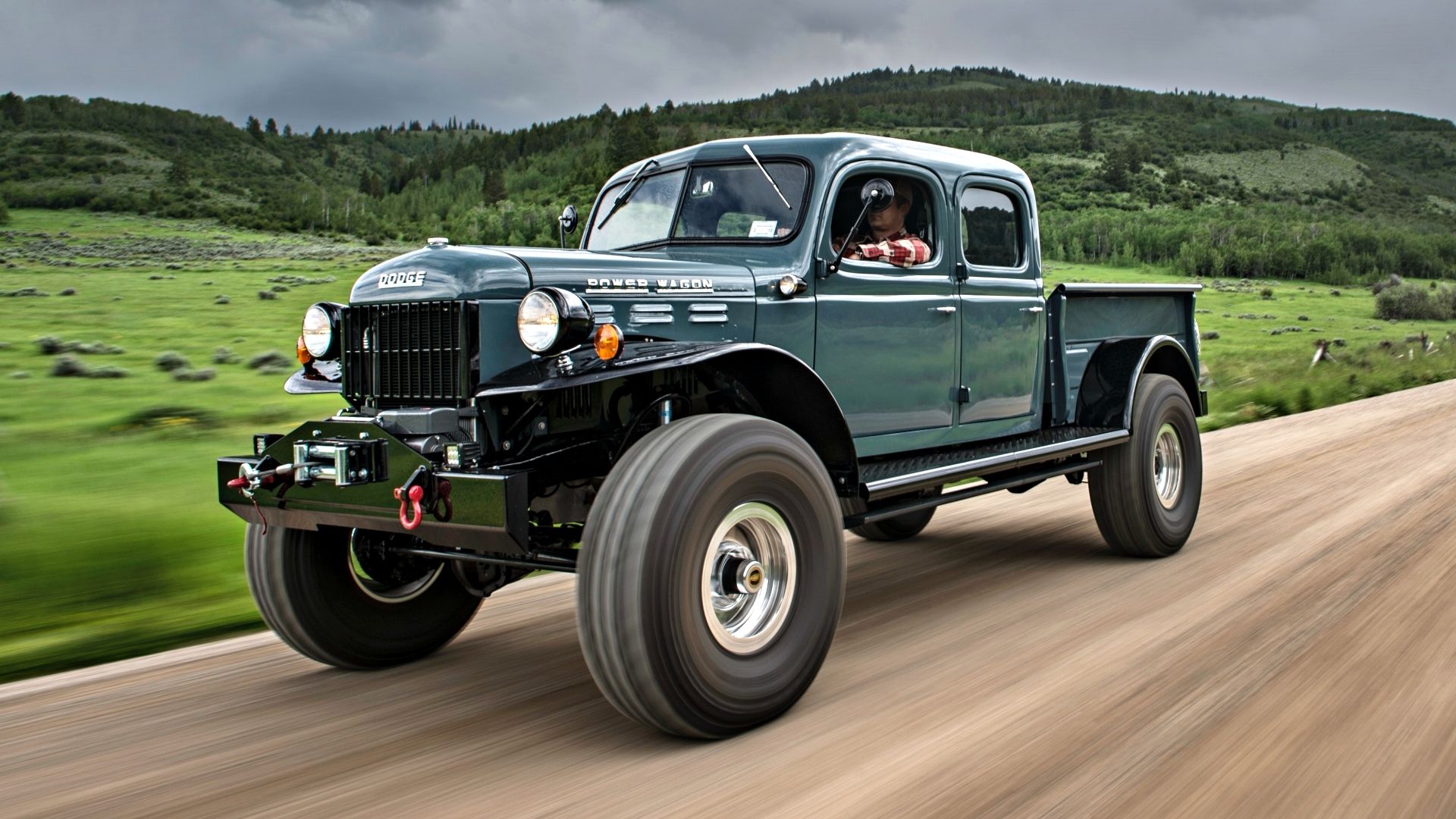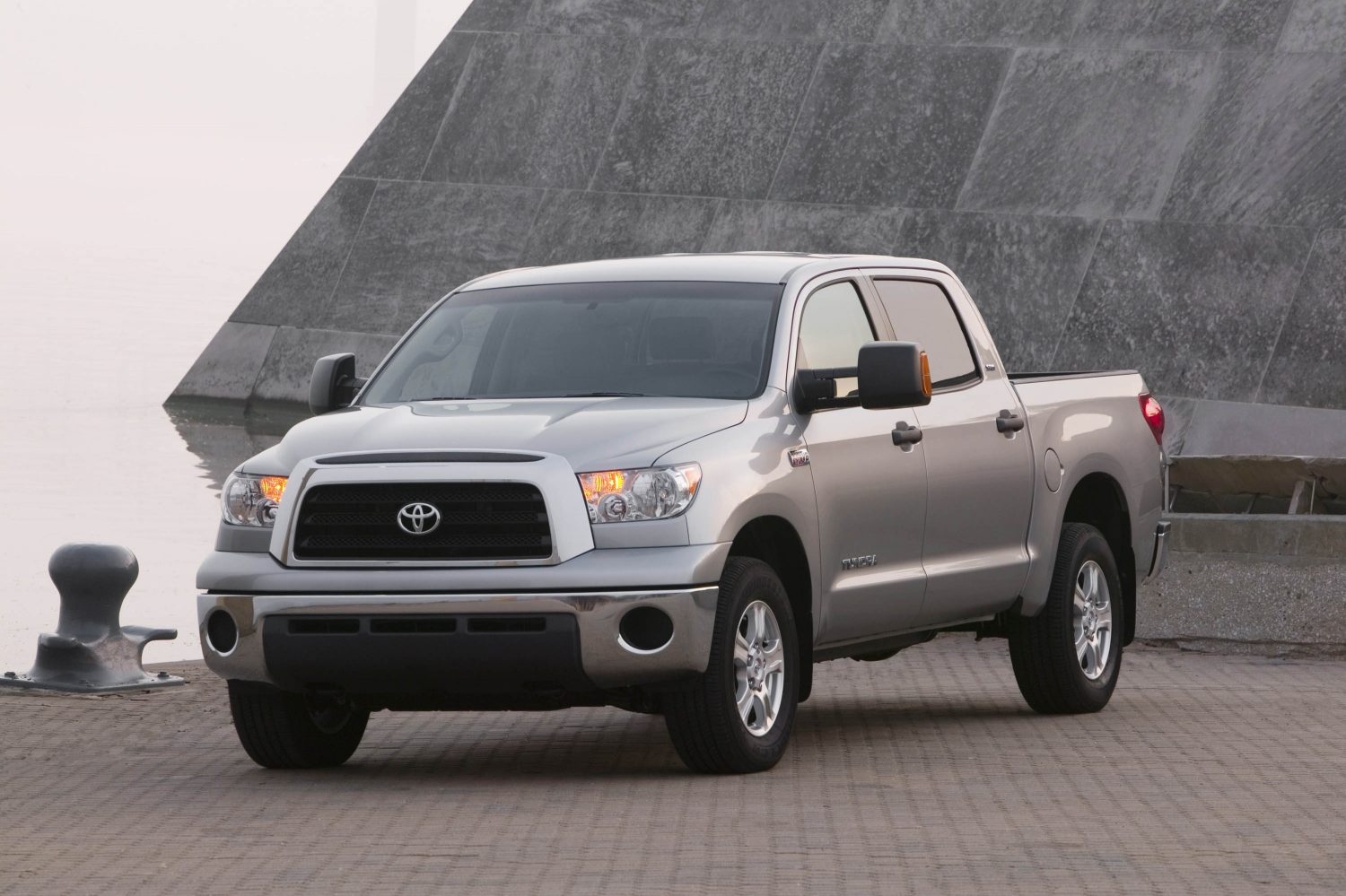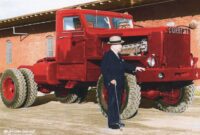Trucks For Sale Under $2000: Your Comprehensive Guide to Affordable Utility pickup.truckstrend.com
In an era where vehicle prices seem to constantly climb, the idea of finding a functional, reliable truck for under $2000 might sound like a pipe dream. However, for the savvy shopper, the determined DIYer, or anyone in need of basic utility without breaking the bank, the sub-$2000 truck market is a very real, albeit challenging, frontier. This guide aims to demystify the process, offering practical advice, realistic expectations, and actionable insights for anyone looking to navigate the exciting, often grimy, world of ultra-affordable pickups.
A truck for under $2000 isn’t just a vehicle; it’s often a project, a learning experience, and a testament to resourcefulness. It’s the perfect solution for students needing a cheap ride, small business owners on a shoestring budget, weekend warriors hauling lumber, or hobbyists seeking a robust platform for customization. While these trucks will rarely be showroom-ready, with careful searching and a willingness to get your hands dirty, they can provide immense value and utility far beyond their modest price tag.
Trucks For Sale Under $2000: Your Comprehensive Guide to Affordable Utility
The Reality of the Sub-$2000 Truck Market: What to Expect
Let’s be clear: a truck priced under $2000 is not going to be a late-model, low-mileage beauty. What you can expect is a vehicle with significant mileage (often 150,000 to 300,000+ miles), visible cosmetic wear and tear (dents, scratches, faded paint, interior rips), and likely a few mechanical quirks. Rust, especially in areas with harsh winters, is almost a certainty.
These trucks are typically sold at this price point for several reasons:
- Age and Mileage: They are old, well-used, and have lived a full life.
- Cosmetic Imperfections: The cost to bring them up to "nice" standards often exceeds their value.
- Minor Mechanical Issues: A check engine light, a leaky seal, or a noisy suspension component can significantly drop a truck’s value, even if the repair isn’t catastrophic.
- Seller’s Motivation: Owners may be upgrading, downsizing, or simply don’t want to deal with a lingering repair, preferring a quick sale.

The key is to differentiate between a "diamond in the rough" – a truck with solid bones and a few manageable issues – and a "money pit" – a vehicle with fundamental, expensive problems like a failing transmission, severe frame rust, or a blown head gasket. Your success in this market hinges on your ability to spot the former and avoid the latter.
Where to Find Your Next Affordable Workhorse

Finding trucks under $2000 requires patience and casting a wide net. Here are the most effective places to look:
- Online Marketplaces:
- Craigslist: Still a go-to for private party sales. Be prepared for a mix of legitimate sellers and scammers. Filter by price, search specific makes/models, and be vigilant.
- Facebook Marketplace: Increasingly popular, offering a more visual and community-driven experience. Many sellers post detailed photos and descriptions. Join local buy/sell/trade groups.
- OfferUp/LetGo (now combined): Similar to Craigslist, focusing on local pick-up items, including vehicles.
- eBay Motors: While many listings are higher-priced, you can sometimes find project vehicles or older models in the "Buy It Now" under $2000 category, especially for parts or local pick-up.

- Local Classifieds & Community Boards: Don’t underestimate old-school methods. Local newspapers, bulletin boards at grocery stores, and community centers can sometimes have hidden gems, often from sellers who aren’t tech-savvy.
- Auto Auctions:
- Government/Police Impound Auctions: Often have vehicles that were seized or abandoned. Prices can be incredibly low, but vehicles are sold "as-is" with no chance for inspection or test drive, making them high-risk.
- Public Auto Auctions: Some auction houses specialize in older, cheaper vehicles. Again, buyer beware, as extensive pre-purchase checks are usually not permitted.
- Word-of-Mouth & Mechanics: Let friends, family, and local mechanics know you’re looking. Mechanics often know of clients looking to offload older vehicles they don’t want to repair.
- "For Sale" Signs: Drive through neighborhoods, particularly rural areas. Many older trucks are sold simply by a sign in the window or yard.
Essential Pre-Purchase Inspection & Due Diligence
This is the most critical step. Never buy a truck under $2000 without a thorough inspection. Assume there are problems, and try to find them.
- Exterior Check:
- Rust: This is paramount. Inspect the frame rails (especially near the wheels and under the doors), rocker panels, cab corners, bed mounts, and suspension components. Surface rust is common; frame rot is a deal-breaker.
- Tires: Check tread depth and look for uneven wear (indicating alignment or suspension issues). Old, dry-rotted tires will need immediate replacement.
- Lights & Glass: Ensure all lights (headlights, taillights, turn signals) work. Check for cracks in the windshield and mirrors.
- Body Panels: Look for significant dents, mismatched paint, or signs of major accident repair (poor panel gaps, crumpling).
- Interior Check:
- Upholstery: Rips, stains, and general wear are expected. Check seat adjustments.
- Dashboard & Electronics: Are all warning lights on? Test all switches (windows, locks, radio, wipers, HVAC fan speeds, AC/heat).
- Odors: Musty smells can indicate water leaks; burning smells suggest electrical or oil issues.
- Under the Hood:
- Fluids: Check oil (color, level), coolant (level, color – rust-colored is bad), brake fluid, power steering fluid, and transmission fluid (if dipstick accessible). Look for leaks around seals and hoses.
- Belts & Hoses: Look for cracks, fraying, or bulging.
- Battery: Check terminals for corrosion.
- General Cleanliness: A very clean engine bay can hide leaks; a very dirty one might indicate neglect.
- Test Drive:
- Engine: Listen for knocks, pings, or excessive smoke from the exhaust (blue = oil, white = coolant, black = rich fuel).
- Transmission: Pay close attention to shifts. Are they smooth or harsh? Does it slip between gears? Does it engage reverse quickly?
- Brakes: Test them thoroughly. Do they pull to one side? Is the pedal spongy? Any grinding noises?
- Steering & Suspension: Does it track straight? Any play in the steering wheel? Listen for clunks or squeaks over bumps.
- Heating & AC: Confirm they work.
- Documentation & VIN Check:
- Ensure the seller has a clean title in their name. A "salvage" or "rebuilt" title significantly lowers value and can make insurance difficult.
- Service Records: Rare at this price point, but a huge bonus if available.
- VIN Check: Run the VIN (Vehicle Identification Number) through a service like Carfax or AutoCheck if possible (even a basic free check can reveal red flags). At this price point, paying for a full report might not be worth it unless the truck seems exceptionally good.
- Bring a Mechanic: If you’re serious about a truck, invest $50-$100 for a pre-purchase inspection by a trusted mechanic. They can spot issues you’d miss and provide an estimate for necessary repairs. This is the single best piece of advice for this market.
Common Issues and Potential Repairs to Budget For
When buying a sub-$2000 truck, assume you’ll need to spend at least an additional 25-50% of the purchase price on immediate maintenance and repairs to make it reliably roadworthy.
- Engine: Oil leaks (valve covers, oil pan), misfires (spark plugs, wires, coil packs), worn engine mounts, noisy accessories (alternator, power steering pump).
- Transmission: Delayed shifts, slipping, harsh engagement. These are often the most expensive repairs and can easily turn a cheap truck into a money pit.
- Brakes: Worn pads/rotors, seized calipers, master cylinder issues.
- Suspension & Steering: Worn shocks/struts, ball joints, tie rods, control arm bushings. These affect ride quality, handling, and tire wear.
- Electrical: Non-functioning windows, door locks, radio, or dashboard lights. Can be simple fuse issues or complex wiring problems.
- Rust: While frame rust can be fatal, body rust on rocker panels, wheel wells, and bed sides can be cosmetic or require welding. Exhaust system rust is also common.
- Tires: Old, dry-rotted, or mismatched tires are a safety hazard and a common immediate expense.
Types of Trucks You Might Find Under $2000
The sub-$2000 market is dominated by older models, typically from the 1990s and early 2000s.
- Compact/Mid-size Pickups:
- Examples: Ford Ranger, Chevrolet S-10/Sonoma, Nissan Frontier (1st gen), Toyota Tacoma (1st gen, though harder to find under $2k due to demand), Mazda B-Series.
- Pros: Better fuel economy, easier to maneuver and park, good for light hauling and personal use. Parts are often plentiful and affordable.
- Cons: Limited payload and towing capacity, often heavily used for work, prone to rust in certain areas.
- Full-size Pickups:
- Examples: Ford F-150 (9th-10th gen), Chevrolet C/K 1500/Silverado 1500 (4th-1st gen), Dodge Ram 1500 (2nd gen), GMC Sierra 1500 (1st gen).
- Pros: Higher payload and towing capacity, more spacious cabs, often built to be durable workhorses.
- Cons: Worse fuel economy, larger overall size can be cumbersome, repair costs for major components can be higher, often very high mileage and hard usage.
- SUVs with Truck Beds (Rare):
- Examples: Chevrolet Avalanche (1st gen), Ford Explorer Sport Trac (1st gen).
- Pros: Versatility of a closed cabin and an open bed, often more comfortable than traditional trucks.
- Cons: Limited bed space compared to dedicated pickups, complex "mid-gate" systems can have issues.
Tips for Negotiating and Making the Purchase
- Know the Market: Research similar trucks in your area to understand typical pricing and common issues. Use sites like Kelley Blue Book or NADA Guides for older models, but understand that private party sales under $2000 are often highly negotiable based on condition.
- Point Out Flaws (Respectfully): Use any issues you find during your inspection as leverage for negotiation. "I noticed the tires are old, and the AC isn’t blowing cold; I’ll need to budget for those repairs."
- Have Cash Ready: Cash offers are highly appealing to private sellers and can often secure a better deal, especially if they want a quick sale.
- Don’t Be Afraid to Walk Away: If the seller is unwilling to budge on price, if the truck has too many red flags, or if you simply don’t feel right about it, be prepared to walk away. There will always be another truck.
- Proper Title Transfer: Ensure the seller signs the title over to you correctly. Verify the VIN on the title matches the truck. Understand your state’s requirements for registration and sales tax.
Common Truck Models Found Under $2000 and What to Expect
| Truck Model (Examples) | Typical Years (Found under $2k) | Common Condition Expectations | Expected Maintenance/Repair Areas | Pros | Cons |
|---|---|---|---|---|---|
| Ford Ranger / Mazda B-Series | Late 1990s – Early 2000s | High mileage, cosmetic wear (dents, faded paint), rust on bedsides/rockers | Suspension (ball joints), rust repair, minor electrical, cooling system | Reliable 4-cylinder/V6 engines, easy to work on, good MPG (for a truck) | Limited towing/payload, common rust spots, basic features |
| Chevy S-10 / GMC Sonoma | Late 1990s – Early 2000s | High mileage, interior wear, potential for engine oil leaks | Fuel pump, intake manifold gaskets, suspension, rust on cab corners | Durable engines (especially 4.3L V6), good parts availability, simple design | Rust-prone, less refined interior, not as powerful as full-size |
| Ford F-150 (9th-10th Gen) | Mid-1990s – Early 2000s | Very high mileage, significant cosmetic wear, rust on frame/body | Exhaust manifold bolts, transmission (older models), spark plugs, rust repair | Strong V8 options, high payload/towing, very common (parts easy) | Poor fuel economy, larger turning radius, often heavily used/abused |
| Dodge Ram 1500 (2nd Gen) | Mid-1990s – Early 2000s | High mileage, interior issues (dash cracks), potential rust | Steering/suspension components, exhaust manifolds, transmission (automatic) | Bold styling, powerful V8 engines, comfortable ride | High maintenance potential, dash cracking, fuel economy |
| Toyota Tacoma (1st Gen) / T100 | Early-Mid 1990s (Tacoma) / 1990s (T100) | Very high mileage, often well-maintained but still aged, rust on frame | Frame rust (critical inspection point!), timing belt (V6), suspension | Legendary reliability, holds value well, good off-road capability | Hardest to find under $2k (due to demand), rust can be severe, lower power |
Frequently Asked Questions (FAQ)
Q1: Is it even possible to find a reliable truck for under $2000?
A1: Yes, it is possible, but reliability is relative. You can find a truck that starts, drives, and hauls without major immediate issues. However, "reliable" in this price range means it will likely need ongoing maintenance and minor repairs. It won’t be as trouble-free as a newer vehicle.
Q2: What’s the absolute minimum I should budget beyond the purchase price?
A2: You should budget at least $500-$1000 for immediate, necessary repairs (tires, brakes, fluids, minor leaks, spark plugs) and registration/title fees. A full pre-purchase inspection by a mechanic is also highly recommended.
Q3: Should I buy from a dealer or private seller?
A3: For trucks under $2000, private sellers are almost always the way to go. Dealers rarely carry vehicles in this price range, and if they do, they’ve likely been overlooked or are being sold "as-is" with a significant markup for minimal effort.
Q4: What are the most important things to check for rust?
A4: Frame rails (especially near suspension mounting points and where the cab meets the bed), rocker panels (under the doors), cab corners, and bed mounts. Surface rust is common and often manageable, but large holes or flaking rust on the frame are major red flags.
Q5: Can I get financing for a truck this cheap?
A5: Almost certainly no. Lenders typically do not offer financing for vehicles under a certain value (often $5,000-$10,000), as the risk is too high. You’ll need to pay cash or secure a personal loan.
Q6: How do I know if the title is clean?
A6: Always ask to see the physical title. Look for words like "Salvage," "Rebuilt," "Flood," or "Junk." Verify the VIN on the title matches the truck. If you’re unsure, a VIN check service can provide more history.
Q7: What are the best brands to look for in this price range?
A7: Toyota (Tacoma, T100) often hold their value and are known for reliability, but are harder to find cheap. Ford (Ranger, F-150) and Chevrolet (S-10, Silverado/C/K) are plentiful, parts are cheap, and they are generally robust. Dodge Rams can be found but often come with more potential issues.
Conclusion
Finding a truck for under $2000 is an exercise in managing expectations, diligent searching, and thorough inspection. It’s not about finding a perfect vehicle, but rather identifying a functional one that aligns with your budget and willingness to invest time and effort. While these trucks come with their share of quirks and inevitable repairs, the satisfaction of owning a capable workhorse for a fraction of the cost of a new vehicle is immense.
Approach the hunt with a critical eye, a budget for immediate repairs, and perhaps a friend who knows their way around an engine. With patience and persistence, you can indeed uncover a hidden gem that serves your needs, proving that utility and affordability can, against all odds, go hand-in-hand in the world of used trucks. Your next budget-friendly adventure awaits!



